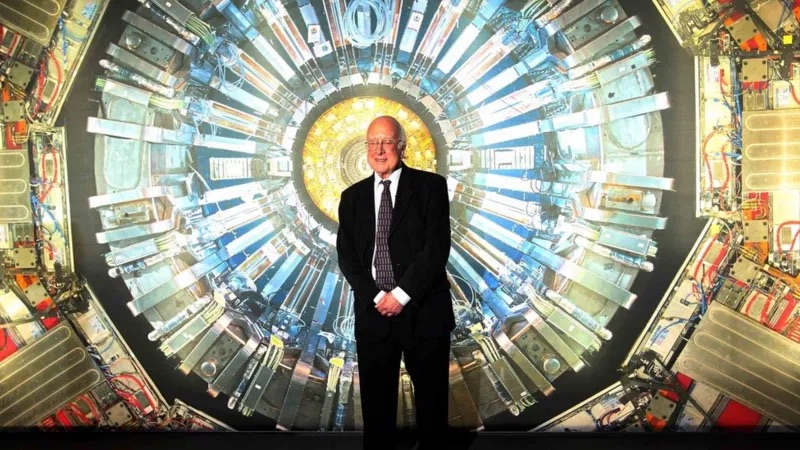- By Georgina Rannard, BBC science reporter
Peter Higgs, a giant of British science who came up with the idea of the Higgs boson particle, has died aged 94.
He was awarded the Nobel prize for Physics in 2013 for his revolutionary work showing how the boson helps bind the Universe together.
A statement from Edinburgh University said he died in the city on Monday.
It called him a “truly gifted scientist whose vision and imagination have enriched our knowledge of the world that surrounds us”.
Professor Brian Cox paid tribute to Higgs on X (formerly known as Twitter): “I was fortunate enough to meet him several times, and beyond being a famous physicist – I think to his embarrassment at times – he was always charming and modest.
“His name will be remembered as long as we do physics in the form of the Higgs Boson.”
In the 1960s Higgs and other physicists worked on an idea to explain why the building blocks of the Universe have mass.
It sparked a search for the Holy Grail of physics – a particle that could explain three fundamental forces (electromagnetism and the weak and the strong nuclear forces) in one theory.
In 2012 scientists using the Large Hadron Collider at the European Organization for Nuclear Research (Cern) in Switzerland finally discovered it – they named it the Higgs boson.
A year later Higgs’ work was recognised in his Nobel Prize which he shared with Francois Englert of Belgium.
He was a shy man who was uncomfortable with the attention his theory brought him. When the announcement was made, he wiped a tear from his eye, but told journalists: “It’s very nice to be right sometimes.”
The head of Cern, Fabiola Gianotti, told BBC News that “Peter was a very special person, an immensely inspiring figure for physicists across the world, a man of rare modesty, a great teacher and someone who explained physics in a very simple and yet profound way.”
“I am very saddened, and I will miss him sorely,” she said.
Alan Barr, Professor of Physics at the University of Oxford, paid tribute to the huge impact Higgs had on our understanding of the Universe.
“He proposed the existence of a field that pervades the entire universe, from mass to particles from electrons to top quarks.”
“He was also a true gentleman, humble and polite, always giving due credit to others, and gently encouraging future generations of scientists and scholars,” he added.
Scotland’s First Minister Humza Yousaf has paid tribute to him as a “visionary whose idea, and its discovery some 48 years later, is transforming our understanding of the Universe”.


